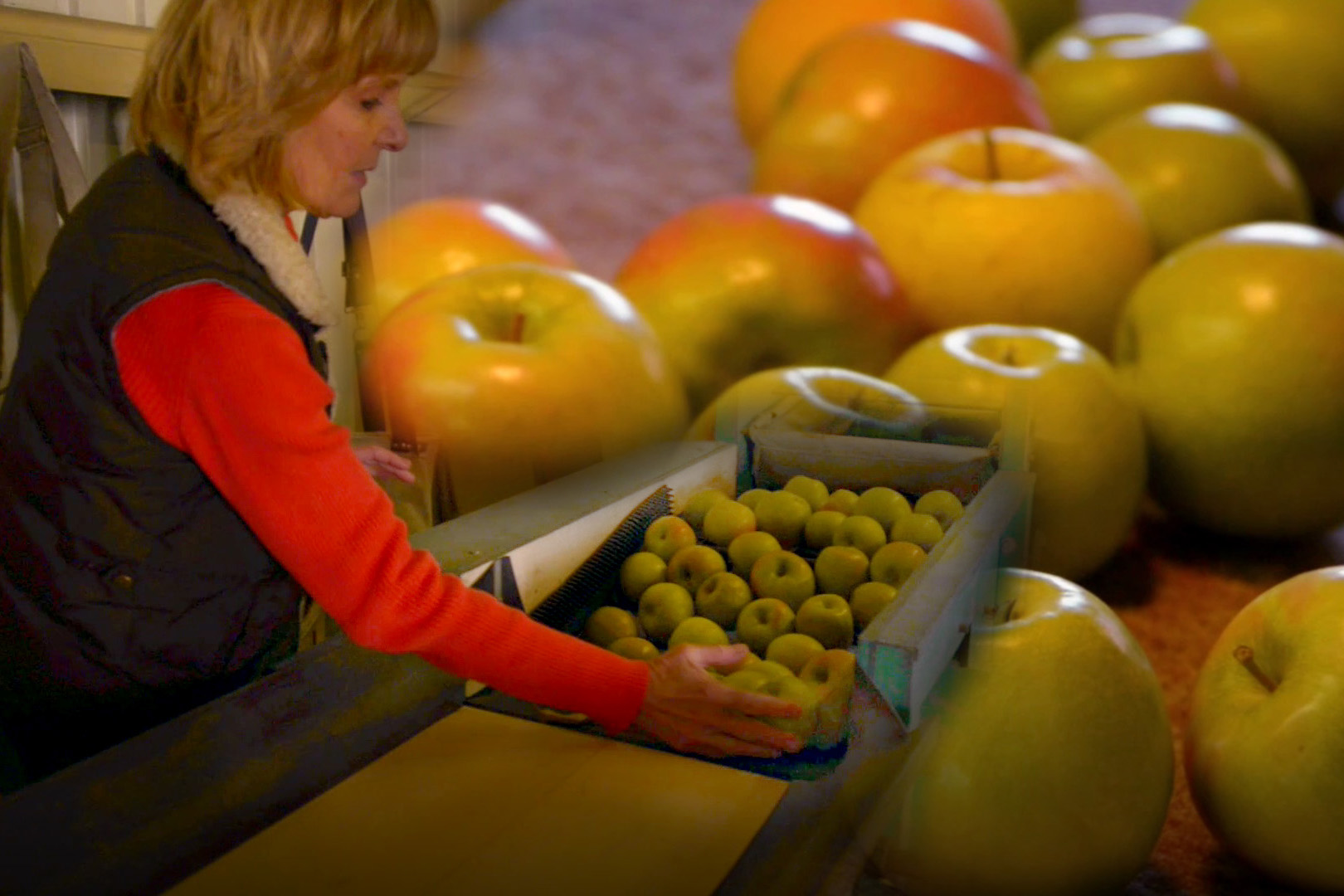

How It's Done:
NEON SIGNS
Grainger Everyday Heroes: Apple Orchard Farmers
By Grainger Editorial Staff 6/8/20
Kathy Bock’s dad started an apple orchard as a hobby back in the 1960s. The orchard was supposed to be just a few trees for the family. He planted 20 trees which was more than enough apples for their family, so they sold extra apples out of their garage. Today, the Honey Hill Orchard is a fall apple-picking destination. Whether you pick them yourself or purchase them, every apple sold is hand picked.
Oh, we're just in time. We're actually making some donuts. I`m Kathy Bock and this is my husband Steve. We have an apple orchard, Honey Hill Orchard. My dad started the orchard as a hobby back in the 60s, and it was just going to be a few trees for family. He planted about 20 trees but there's not that big of a family so he started selling apples from grocery bags out of the garage. My mom had cider donuts at another orchard [and decided to make them herself]. She really developed the recipe for [our cider donuts] that we've kind of stuck with.[They've] always been really popular so we haven't changed anything with that.
So really everything kind of starts here with the apples and the apple trees. Our season starts usually mid-September and as we harvest [apples, they] move on into our building. We can, I guess, kind of go in there and see what we do with the apples after we get them harvested. This is the cooler and everything is picked in crates, brought in here and stored until we're ready to get them sorted out for selling. We're getting them ready now to sell in the store so we have to go through all of them to sort out any that are too small or have bruises on them. Occasionally, [there are] marks on the skin from when they're growing and rubbing on a branch.
Here's where we get them ready for our store. Every apple is looked at and each apple is hand-picked. We can't do any of it with machines because the [apples will] be damaged. This one has just a small puncture wound in it so all of these all can still be used. We can use them for our apple cider because we make our own cider here. This is a cider press. All the apples that I showed you that maybe had a bruise or puncture wound go into the machine. There's a washer here that scrubs them off so that they're all clean, and then the apples drop into [a grinder] where blades grind up the apples into a very fine pulp. This chopped up apple then is first pumped into these cloths. We bring it under the hydraulic part of the press and it comes down on to the [cloths] and it presses down. As it presses down, all of that juice from all this ground up pulp can seep through. We can get about three gallons of cider from a bushel of apples.
Something else that's really important to the orchard, and without them we wouldn't end up having the apples and our pumpkins that we grow, are honeybees. Apple trees aren't self pollinating, so they have to have the insects for pollination. We figured people can go to a grocery store just to buy apples, so we wanted to do something a little different. We haven't [added] the rides or the air bounce rides, that sort of thing. We have a petting zoo which is really fun for the kids. We have a lot of kids [that visit]. They come out from the city and suburbs, and they've never seen a donkey or goats [up close]. I had a guy [visit] this fall that said, "I used to come here when I was a little kid. My parents used to bring me. And now I'm bringing my wife and kids." It's really rewarding that you can make somebody's day. [Visitors] enjoy coming out here to see what life on the farm is really like.
![]()
The information contained in this article is intended for general information purposes only and is based on information available as of the initial date of publication. No representation is made that the information or references are complete or remain current. This article is not a substitute for review of current applicable government regulations, industry standards, or other standards specific to your business and/or activities and should not be construed as legal advice or opinion. Readers with specific questions should refer to the applicable standards or consult with an attorney.






